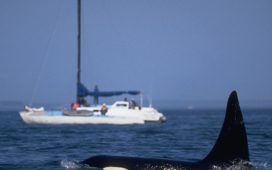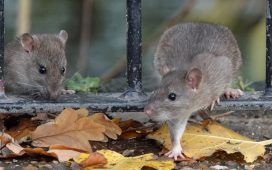The RSPCA has accused the federal government of making a “backflip on animal welfare safeguards” with the release of a policy document outlining options for the live export of sheep to the Middle East.
The discussion paper, released on Friday, outlines four possible options to govern the live sheep export trade from Australia to the Middle East from 2020 onwards.
Agriculture minister Bridget McKenzie said her department was seeking feedback from stakeholders on the economic and regulatory impact of each of the proposed options, but that it would “also welcome alternative options”.
It forms part of an ongoing overhaul of the industry following the release of whistleblower footage by Animals Australia in 2018 that showed carcasses thrown overboard and sheep panting from heat stress on a deadly voyage aboard the live export ship Awassi Express. The exporter involved is currently facing criminal charges for animal cruelty.
As a result, three reviews were conducted, including a review of the heat stress risk assessment model, which determines how much space sheep need in different conditions.
Of the four options in the discussion paper, only option three proposes adopting the new heat stress guidelines.
That option, the paper said, would “significantly lower the risk that any sheep exported to the Middle East would experience unsatisfactory welfare from heat stress in any given month.”
It would also “prohibit or substantially reduce” live export between May and September, when temperatures around the Gulf countries are at their height, and reduce stocking densities in October by 40-60%.
The RSPCA said option three was the only viable proposal but the failure to include a summer trade ban as well as following the government’s own advice on heat stress was “completely unacceptable” and “a significant backwards stumble” for animal welfare.
“The only viable option to protect the welfare of Australian live exported sheep while the trade continues is to prohibit the highest risk months of the year … and introduce the revised heat stress risk assessment model, which the government has already committed to doing on multiple occasions,” a statement from the RSPCA said.
The first option in the discussion paper is to introduce a three-month ban during the hottest part of the Middle Eastern summer, with the existing heat stress risk assessment model — which allows for significantly higher stocking densities than the updated model — operating for the remaining nine months of the year.
The report said that option carried a risk of a heat stress incident in the “shoulder” months of May or September.
Option two proposed permanently adopting the live export ban that was imposed this year, which prevented any shipments leaving Australia between 1 June and 22 September, while maintaining the old heat stress model the rest of the time.
A fourth option proposed no prohibition or new restrictions on trade, which the department said would carry a “significant risk of a heat stress incident.”
The RSPCA said the only acceptable solution was a combination of options two and three.
“Any other course of action is not backed by the science or evidence; and represents a backflip on the government’s previous assurances, as well as an unmitigated failure to act on the community’s concerns,” it said.
Live exports from Australia to the Middle East resumed on Monday.
Live sheep exports account for 0.5% of Australia’s total agriculture exports and industry figures say it underpins 3,450 jobs in regional Australia.
About 80% of the 2 million sheep exported live each year come from Western Australia, where about 30% of sheep sold off the farm go to live export. By allowing ships to leave WA in May, the discussion paper said, it would be able to take sheep turned off at the end of the growing season.
The discussion paper is open for public comment until 28 October.







